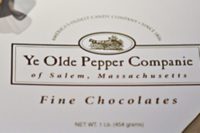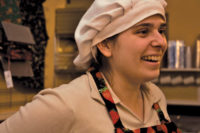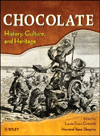
|
| Reprinted with permission from Chicago’s Sweet Candy History by Leslie Goddard. To view a slide show of pictures from the book, click here. |
Those who remember Chicago as the being the “Candy Capital of the World” can step back once again and relive the Windy City’s sweet origins.
Author Leslie Goddard, a lifelong Chicago resident and historian by profession, provides a photo essay of confectionery manufacturing in Chicago in her new book, Chicago’s Sweet Candy History. (View a slideshow of pictures from the book here).
Helped by an experienced labor force from Europe and the emergence of the city as a railroad nexus, the “City of Big Shoulders” quickly became a candies’ crossroads.
From early pioneers such as John Neemes, Milton Page and Charles Gunther to legendaries such as William Wrigley Jr., H. Teller Archibald, Emil Brach and Gustav Goelitz, Goddard traces the peppermint-twisted evolution of Chicago’s rise as a confectionery powerhouse.
In addition to documenting the likes of the biggest names in the industry, the 128-page soft-cover book also captures smaller, family-based companies who make a name for themselves with specific products that exist to this day, such as Oh Henry! Milky Way bars, Cracker Jacks, Red Hots and Jaw Breakers to name a few.
Packed with vintage images of stores, factories and advertisements, Chicago’s Sweet Candy History reveals how the city’s candy makers created strong bonds between people and their favorite candies.
Goodard spent more than a year digging through museum and library archives and contacting candy companies to locate the more than 200 photographs and stories that make up the book.
As she herself explains, “I’m amazed at how many people collect candy-related memorabilia and how passionate people are about their favorite candies.”
Although an avid candy lover and candy memorabilia collector herself, Goddard hopes the book does more than simply stir up sweet memories.
“We often think of candy as something frivolous and associated with childhood and overlook it as a source of deeper historical understanding,” she adds. “But this history reveals a lot about how Chicago grew, what influenced its development, and how the city’s cultural identity was shaped and reshaped.”
Published by Mount Pleasant, S.C.-based Arcadia Publishing, Chicago’s Sweet Candy retails for $21.99. Visit arcadiapublishing.com for more information.









